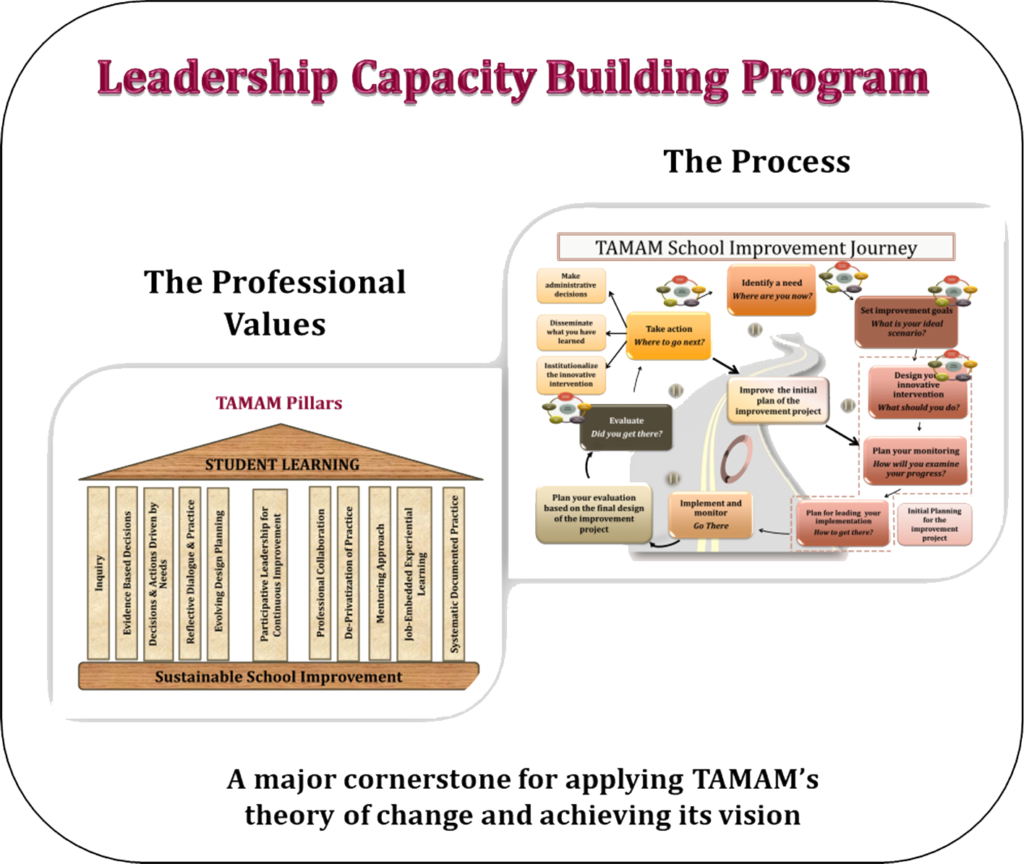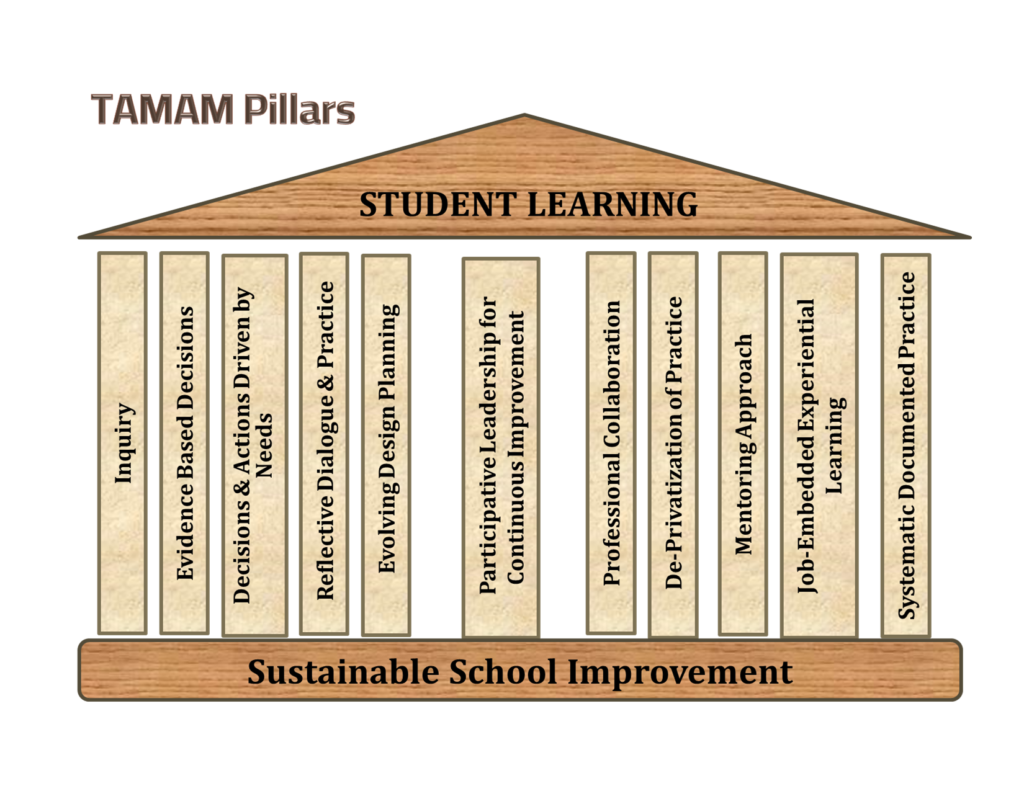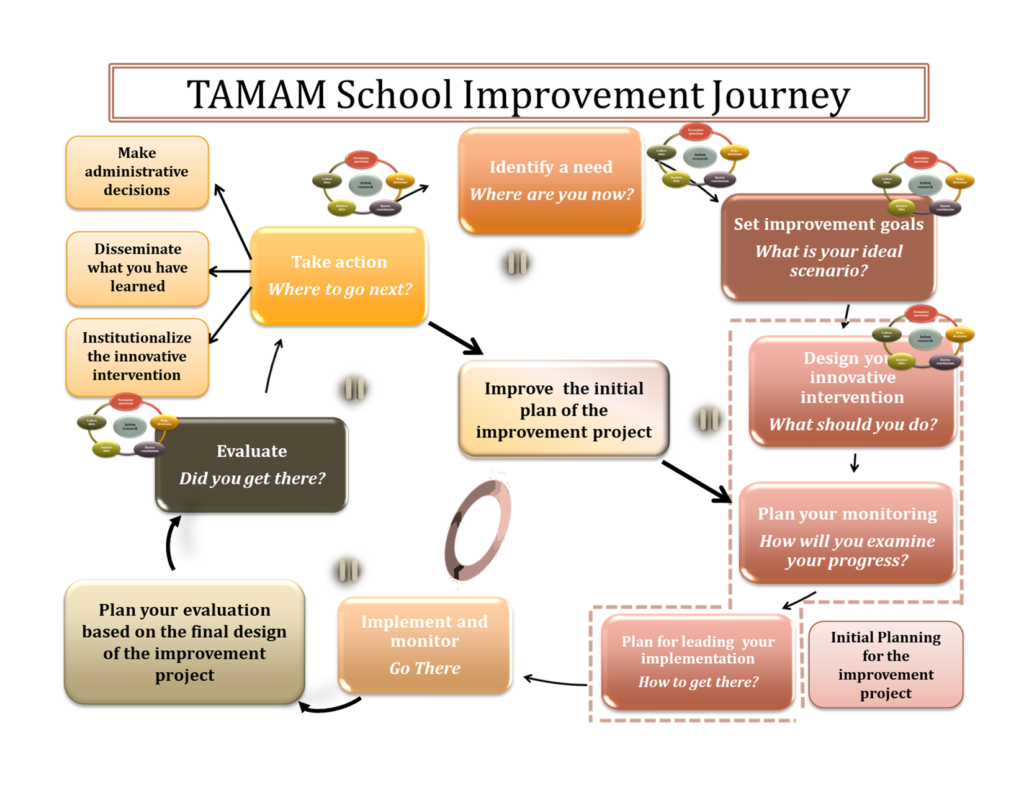محام وشريك مؤسس في مكتب رشيد فهمي كرامي للمحاماة والإستشارات القانونية. محكم ووسيط دولي معتمد لدى عدد من المراكز المحلية والعالمية. مدرب معتمد على الوساطة والتحكيم لدى نقابة المحامين في طرابلس ومركز التسوية الفعالة للنزاعات– لندن ومعهد المحكمين القانونين. وضع وشارك في العديد من الدورات التدريبية المحلية والدولية المتعلقة بالوساطة والتحكيم. تولى وضع عدة مشاريع قوانين أبرزها مشروع قانون الوساطة المعتمد من نقابة المحامين في طرابلس والمناقش حالياً أمام اللجان النيابية المختصة. كما تولى وضع قواعد مركز الوساطة والتحكيم في نقابة المحامين في طرابلس. بالإضافة الى إعداد عدد من الدراسات القانونية والمتعلقة بالوساطة والوسائل البديلة لحلّ النزاعات. خبير سابق في الوساطة لدى مؤسسة التمويل الدولية. مستشار وزير الشؤون الإجتماعية لشؤون المرأة والطفل والمشرف على خطة وزارة الشؤون الموضوعة لحماية المرأة والطفل والموقعة مع الـيونيسف. عضو في جمعية بيت التدريب والحوار
Overview of the Program
The “TAMAM Capacity Building Program” is the first research-based design that the TAMAM Steering Team generated and refined through iterative cycles of inquiry and action. The program aims at building leadership capacity among lead teams of practitioners at schools while setting the stage for building broad based leadership capacity encompassing students, parents, and partners from the larger community. Implementation of the program spans over 3-4 years and follows an evolving plan approach which facilitates customization of the program to the unique conditions and sociocultural context of educational institutions.

A. Guiding Principles
The TAMAM Pillars are eleven research-based principles found to be essential for leading change in educational institutions in the Arab context. They encompass a combination of theoretical knowledge, skills and attitudes needed to enhance the performance of educational practitioners and increase their commitment to lead and sustain school-based improvement at their institutions. The TAMAM Pillars constitute the foundation for deriving the targeted outcomes as well as the strategies used to support and guide the lead teams’ continuous professional learning.

B. Targeted Outcomes
At the conclusion of the TAMAM Capacity Building Program, lead team members acquire Competencies essential to lead sustainable school-based improvement. These Competencies mirror TAMAM Pillars and include knowledge and skills and attitudes that prepare practitioners to enact the professional norms of reflective dialogue and practice, inquiry, evidence-based decisions, decisions and actions driven by needs, de-privatization of practice, systematic documented practice, evolving design planning, professional collaboration, participative leadership for continuous improvement, mentoring approach and job-embedded experiential learning. Lead teams also acquire the knowledge and skills to implement a strategy which they can always use to initiate and lead improvement initiatives. Finally, they also develop positive attitudes towards change that strengthen their motivation for leading school improvement.
At the institutional level, the TAMAM Capacity Building Program triggers structural and normative changes that foster the school’s organizational learning and development, resulting in self-renewing schools that are flexible in structure, adaptive to change and innovative.
C. Strategies to Train and Guide Educators in Leading School-based Improvement:
The TAMAM School Improvement Journey is a job-embedded, cyclical process that allows lead teams to initiate, plan, implement, monitor and evaluate an innovative improvement project of their choice with a collectively chosen focus that aligns with their school’s vision and mission. This journey consists of a series of stations that entail selecting a focus, designing an intervention for improvement, planning and implementing the intervention, monitoring its implementation and then evaluating its impact.
This journey concludes with practitioners reflecting on the impact of the improvement initiative and then taking action in their school to introduce the necessary organizational changes in order to institutionalize this improvement. The last station in the journey sets the stage to initiate a second cycle of improvement where more teams are involved in professional learning towards building school’s capacity for leading change.
Throughout the journey, TAMAM coaches guide and support the lead team members to acquire the TAMAM Competencies skills and attitudes needed to increase their commitment to lead and sustain reform and change at their institutions.

In addition, TAMAM coaches continuously monitor the lead teams’ progress, offering a balance of support and challenge to facilitate their professional learning. They also negotiate with the school’s administration to provide supportive conditions that ensure sustainability of the lead team’s engagement in TAMAM activities and development of their commitment towards leading school improvement long after the gradual withdrawal of the coaches.
D. Evaluation Framework with Tools and Criteria to Evaluate Impact:
The TAMAM Capacity Building Program offers criteria and a set of tools to collect baseline and monitoring data used to examine the growth in professional learning of lead teams. The program also involves extensive documentation and includes an evaluation research plan that uses existing data and tools to collect additional data for evaluating the targeted outcomes and impact.
The TAMAM Capacity Building Program is detailed and documented in the Resource Book that is designed to support TAMAM coaches while planning for their coaching activities to build leadership capacity of school teams in the different countries.
Design of the Capacity Building Program:
- A set of guiding principles essential to lead sustainable school-based improvement: the eleven TAMAM Pillars.
- Targeted outcomes at the individual, team, and institution levels.
- Strategies to train and guide educators built around a job-embedded process on leading school-based improvement: the TAMAM School Improvement Journey.
- Evaluation framework with criteria and tools to evaluate impact.
- Leading School-Based Improvement Course
This course is an introduction to TAMAM’s Capacity-Building Program that aims to prepare educators to lead sustainable school-based improvement. It is delivered online through the Continuing Education Center (CEC) at AUB. This course aims at introducing the educational theoretical background for sustainable school-based improvement and the needed principals and strategies to lead improvement. The course describes the characteristics of self-renewing schools, the educator who leads improvement, and the profile of the student we aspire to graduate. The course explains the knowledge, skills, and attitudes that educators need to become agents of change in their educational institutions. It also presents the steps followed to launch an innovative intervention, and the procedure to design, implement and evaluate an improvement project, which are referred to as “TAMAM school improvement journey”. The course also discusses the challenges that could face the launching of school-based improvement and suggests strategies to overcome these challenges using the leadership competencies and skills for based-improvement. In this course, the participants will engage in interactive activities and reflections that help them understand the nature of the process of leading school-based improvement.
Audience
Duration
10 hrs
Language
The program will be delivered in Arabic only.
Delivery format
Online Synchronous
